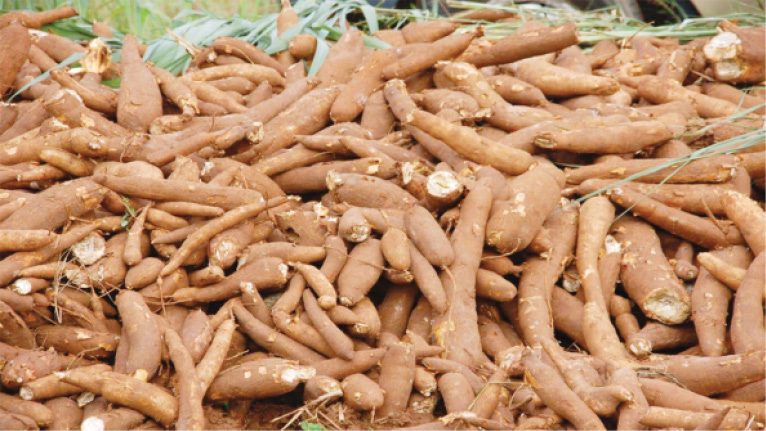For many small-scale farmers who do not have the capacity to process cassava into various products, cultivation of the crop might no longer be a money-making enterprise.
Except for those who have the capacity to convert the tubers into high quality flour, garri, starch and so on, cassava cultivation is now the last option.
Nigeria currently is the largest world producer of cassava doing about 47 million metric tonnes with an average of 10.7 tonnes per hectare.
Few years ago, the Cassava Bread Initiative which started during the Obasanjo administration and ran through Yar’Adua and Jonathan administrations, appeared to have suffered severe setback, leaving most of the farmers stranded for lack of off-takers.
The N10 billion Cassava Bread Initiative launched in 2012 by former president Jonathan has been in comatose since 2015.
The scheme seeks to include at least 10% composite cassava flour into baking flour for bread and other products in order to reduce massive wheat importation.
But the Minister of Agriculture and Rural Development, Chief Audu Ogbeh, last year said government would revive the programme.
At the moment, nothing has been done and the farmers who were told to feed the programme with massive cassava production are backing out as the market is no longer encouraging.
An official of the Cassava Growers Association of Nigeria, Austin Maduka, told this reporter that “Currently there is no genuine cassava market in Nigeria but under the CBN Anchor Borrowers’ window, some cassava off-takers have emerged.”
He believed there were still lots of issues that government needed to resolve to make cassava production lucrative for farmers in view of the many industrial uses, and Nigeria been the world largest producer.
Another cassava farmer and chairman, All Farmers Association of Nigeria, Lagos chapter, Mr Otumba Femi Oke, said a tonne of cassava sometimes sells for N18,000 in the South-west which was not encouraging for many farmers.
“When you look at it, the prices are not favourable for a tonne of cassava tubers to be sold under N20,000 or N18,000. But if you turn it into fufu powder, garri, and other things, you’ll make better gain.” he said.
Mr Oke who also exports garri to the US, said unless one processed the produce, cassava cultivation might not be money-making.
He however said farmers in the South-west enjoy a lot of training opportunities on modern ways of producing and processing cassava – something farmers in the North Central who spoke with Daily Trust said they lacked.
On their part, members of the Master Bakers and Caterers Association believe the revitalization of the Cassava Bread Initiative could inject about N255 billion into the economy annually.
The Publicity Secretary of the association, Mr Joseph Ubah, had sometime in Abuja stressed that “If we must make progress in this country, there must be continuity in our policies.”
“Nigeria will be earning over N255 billion annually if 10 per cent cassava flour is included in bread; Nigerian bakers are even capable of increasing the percentage of cassava flour in bread to 20 per cent. Then, we will be talking of generating about N450 billion annually, which will be added to our Gross Domestic Product (GDP) if this initiative is revived,’’ he stated.
While the IITA is making gains in the development of new cassava technology and innovations, market especially for the smallholder farmers remains a challenge.

 Join Daily Trust WhatsApp Community For Quick Access To News and Happenings Around You.
Join Daily Trust WhatsApp Community For Quick Access To News and Happenings Around You.



